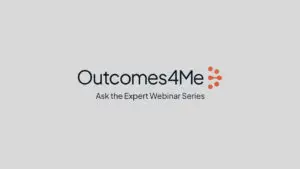Outcomes4Me’s co-founder Maya Said sat down with a member of our medical advisory board, Dr. Therese Mulvey, to answer questions regarding COVID-19 and breast cancer from the frontline. Dr. Mulvey is the director of Breast Oncology at the Massachusetts General Hospital (MGH) North Shore Cancer Center, as well as the Director of Quality, Safety, and Value for the MGH Cancer Center and network affiliates.
We have included the entire video above for anyone who missed it and wants to watch it in full. Here is a recap of the key takeaways from the discussion with Dr. Mulvey:
>> As a healthcare provider on the front lines of the COVID-19 pandemic, what are you seeing?
Right now, one of the most important changes we are making is keeping patients out of the clinic. We can do visits virtually, through Zoom or other platforms, so we can see and talk to patients while keeping them away from clinic. With the new approval of the CARES act, we can also see established new patients on the phone – however the ability to do this depends state regulations. For example, right now in Massachusetts, we can see new patients for a second opinion only if they are from Massachusetts as well.
>> What is one of the biggest misconceptions from people with breast cancer that you’d like to address?
The biggest misconception patients have is that your breast cancer diagnosis automatically makes you at higher-risk of contracting COVID-19. If you have been treated for cure and you are on endocrine therapy or no therapy, you are not immunosuppressed. Your prior cancer diagnosis does not increase your risk.
Patients in active treatment with chemotherapy, HER2-targeted therapy, radiation therapy, or with advanced cancer may be considered to have a less favorable outcome if they were to contract COVID-19. So if you aren’t going to your doctor appointment, stay inside!
>> Do people with breast cancer need to be treated differently than other COVID-19 patients?
We have very little information about breast cancer patients and COVID-19. The data we do have is out of Spain and Italy – but they are only a few weeks ahead of us in this pandemic. We do know that patients with advanced cancer (particularly lung cancer patients) have poorer outcomes with COVID-19. We have less data on breast cancer patients because as soon as social distancing was put in place, breast cancer patients became incredibly careful; infection rates are quite low in the breast cancer community.
The risk of contracting COVID-19 is the same for everyone, including breast cancer patients. No one has immunity to COVID-19 unless they have already contracted it. That being said, the risk of death is increased for cancer patients who contract COVID-19, so stay home and stay safe.
>> What will happen with my cancer treatment if I get COVID-19?
If you are on active treatment and contract COVID-19, we will manage your care like we would any other patient that has contracted COVID-19. If you are on non-immunosuppressive treatments like endocrine therapy (i.e tamoxifen or an aromatase inhibitor), you can continue with treatment. If you are on chemo, we will let you recover from COVID-19 and then resume chemotherapy when it is resolved.
Most patients will be able to recover from COVID-19 and manage their symptoms at home. Most patients will never have to go to the hospital. When you come to the hospital, only about 20% of patients will require the ICU and a small percentage of those patients will require ventilators. Just because you are in the ICU doesn’t mean you will need a ventilator. However, it is a scary time to be in the hospital right now – we still don’t know why some people get better and some don’t.
>> How are treatments changing for patients on active treatment or newly-diagnosed?
This is something you should ask your oncologist as every institution is managing things differently, depending on their available resources. Some places are prioritizing oncology surgery over other types of surgery to help people who can’t wait to have surgery.
Typically, women with ER+/PR+ or HER2+ cancers can receive targeted therapy for a few months in order to delay surgery – this is safe to do and there is even data to suggest that treatment before surgery (neoadjuvant treatment) can lead to better outcomes for patients. If you have triple-negative breast cancer, you will most likely have surgery as planned, without delay.
>> What other information do breast cancer patients need to know in the context of COVID-19? is there a way to prepare?
You can’t outrun COVID-19, but you can take precautions. First and foremost, stay home! Wash your hands, get your groceries delivered if possible, or try to go to the grocery store during the senior hours. This is the key to flattening the curve and protecting yourself from potential exposure.
It’s also very important to get proper rest, avoid excessive alcohol, and exercise. If you go for a walk outside, wear a mask and go at a time when no one else is out. There are also free resources for working out inside if you aren’t able to leave. Not only will you feel better after exercising, it can reduce your risk of recurrence and improve your mental health.
Make sure you talk to your family about your wishes if something were to happen to you. Death can happen to anyone at any time – the key is living your best life now. Stop thinking about when or how you will live your best life. Seize your opportunity and live your best life today.
If you are looking for a specific type of resource, submit your question using the “ASK” tab in the Outcomes4Me app and we will do our best to help you find an answer.
You can access more on the O4ME app here.
